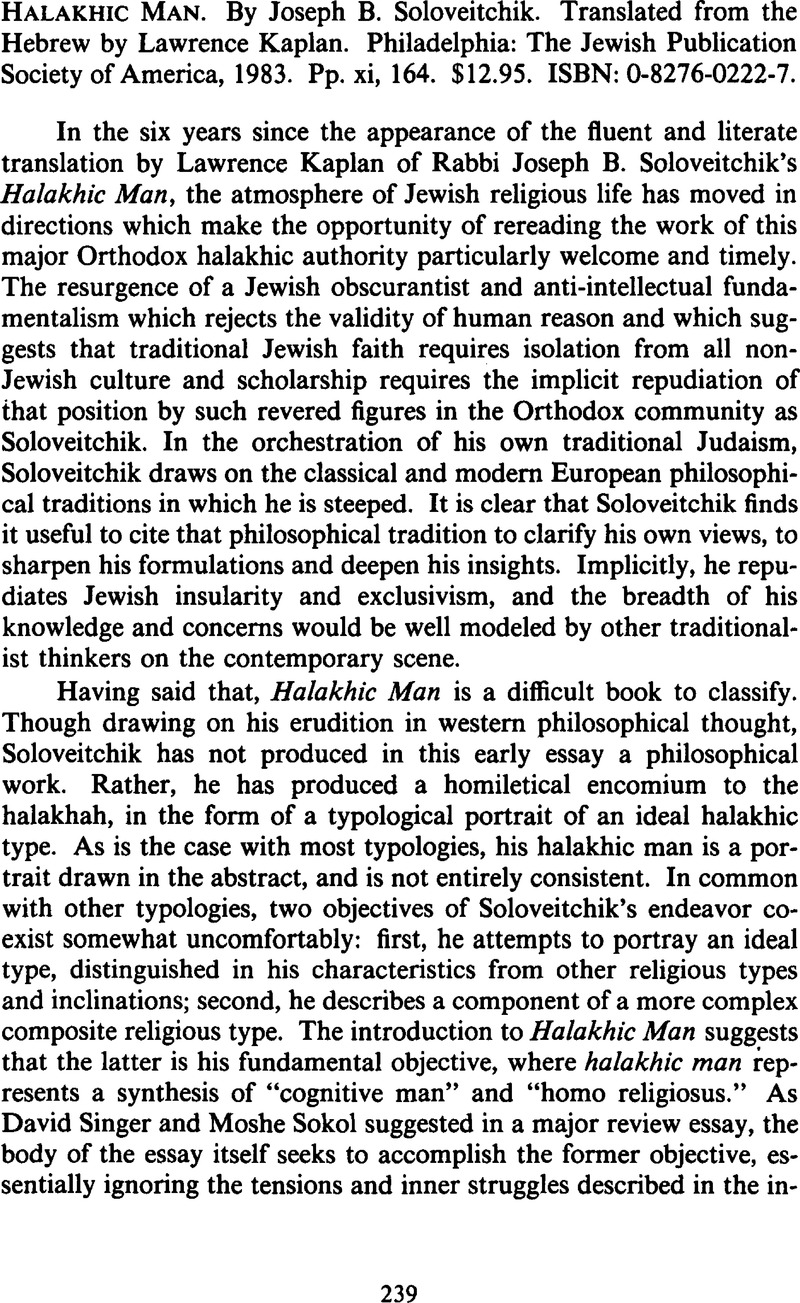No CrossRef data available.
Article contents
Halakhic Man. By Joseph B. Soloveitchik. Translated from the Hebrew by Lawrence Kaplan. Philadelphia: The Jewish Publication Society of America, 1983. Pp. xi, 164. $12.95. ISBN: 0-8276-0222-7.
Published online by Cambridge University Press: 24 April 2015
Abstract

- Type
- Book Reviews
- Information
- Copyright
- Copyright © Center for the Study of Law and Religion at Emory University 1989
References
1. Singer, and Sokol, , Joseph Soloveitchik: Lonely Man of Faith, 2 Modern Judaism 227 (1982)CrossRefGoogle Scholar. This very important essay treats the entire corpus of Soloveitchik's nonhalakhic writing, indicating both development in his thought and inconsistencies. Those with an interest in pursuing the subject of Soloveitchik's thought further will find this essay invaluable.
2. This is a possible but by no means the only possible interpretation of the Job passage. The God speeches which suggest that Job cannot understand everything about the world do not, in my view suggest that Job sinned in attempting to understand everything about existence that could be understood, much as cognitive man in Soloveitchik's formulation sets out to do. It should be recalled that in the prose conclusion of the Book of Job, Job is characterized as being more correct than his friends, and is rewarded rather than punished for his insistence on a confrontation with God.
3. Dorff, , Halakhic Man: A Review Essay, 6 Modern Judaism 91 (02 1986)CrossRefGoogle Scholar.
4. Singer and Sokol, supra note 1, at 237.
5. Hartman, , The Halakhic Hero: Rabbi Joseph Soloveitchik, Halakhic Man, 9 Modern Judaism 256 (1989)CrossRefGoogle Scholar.


